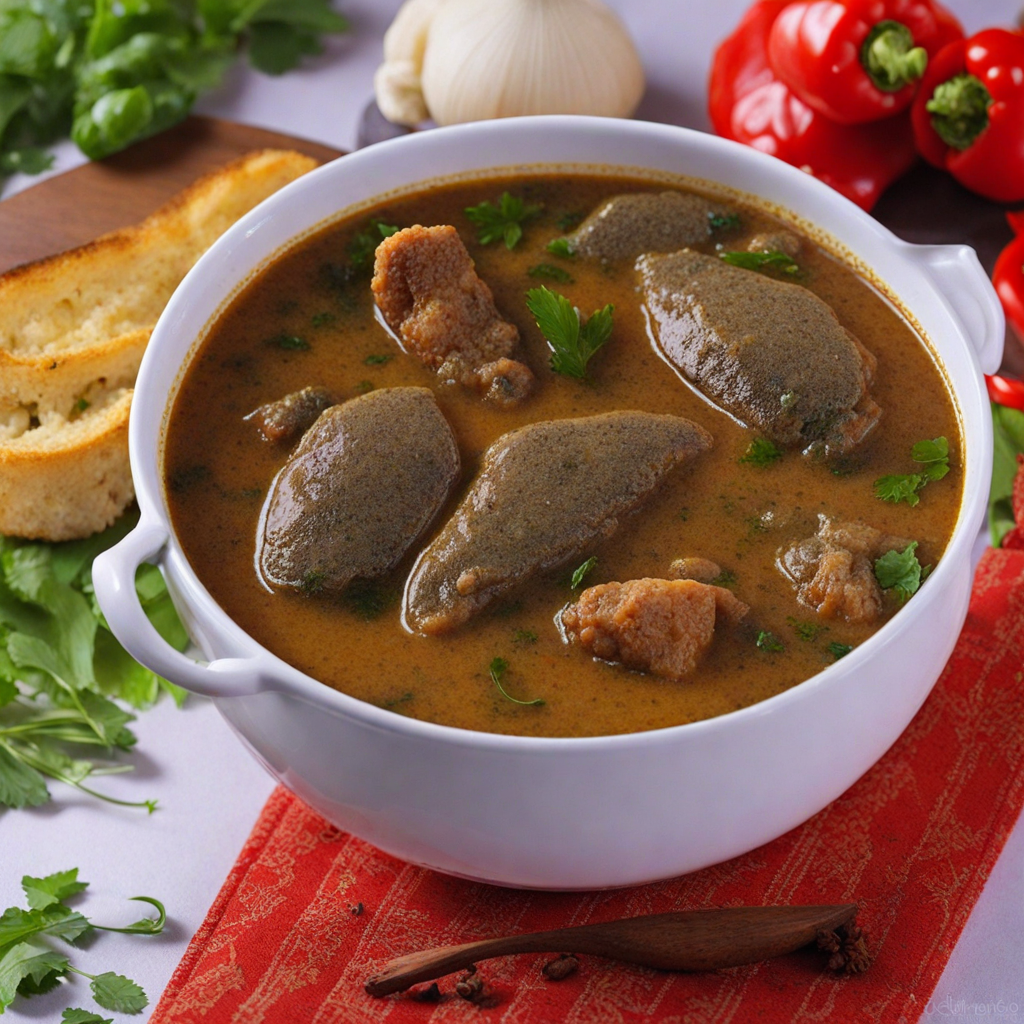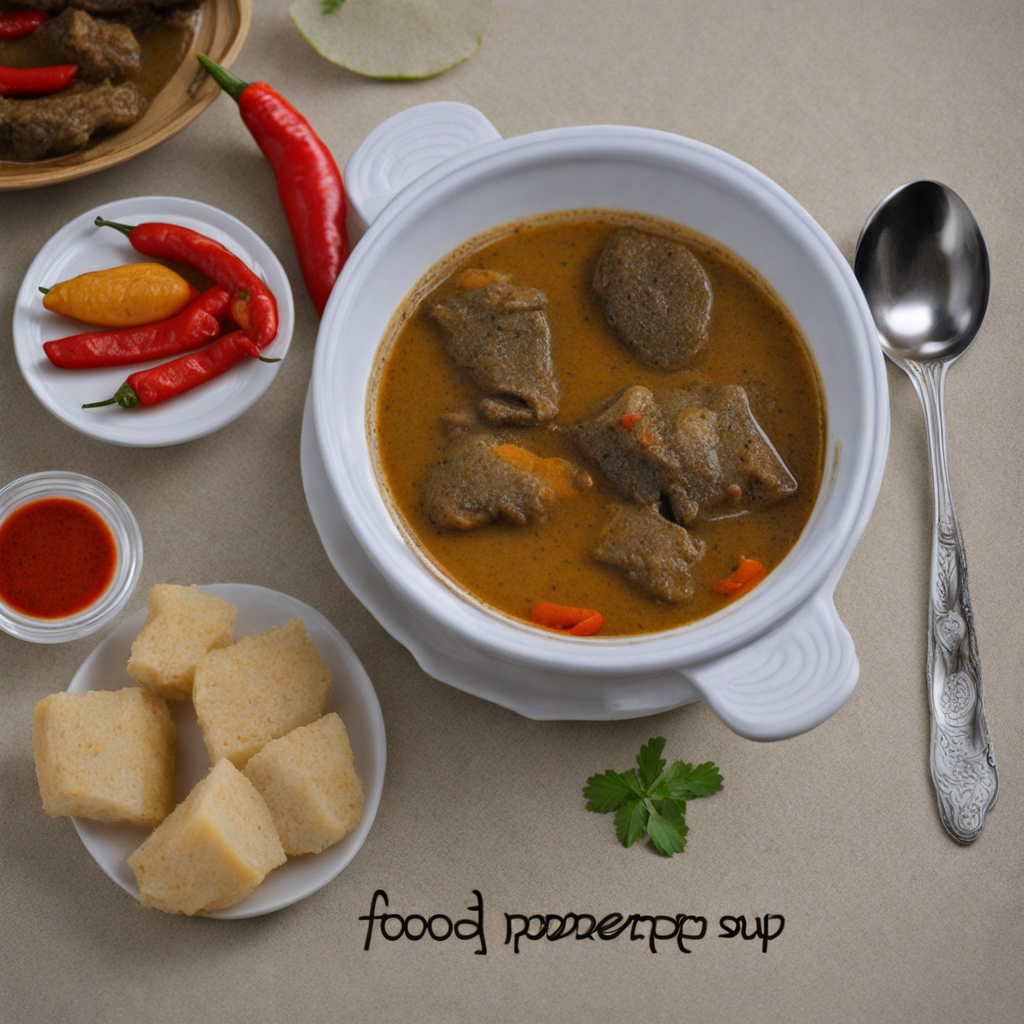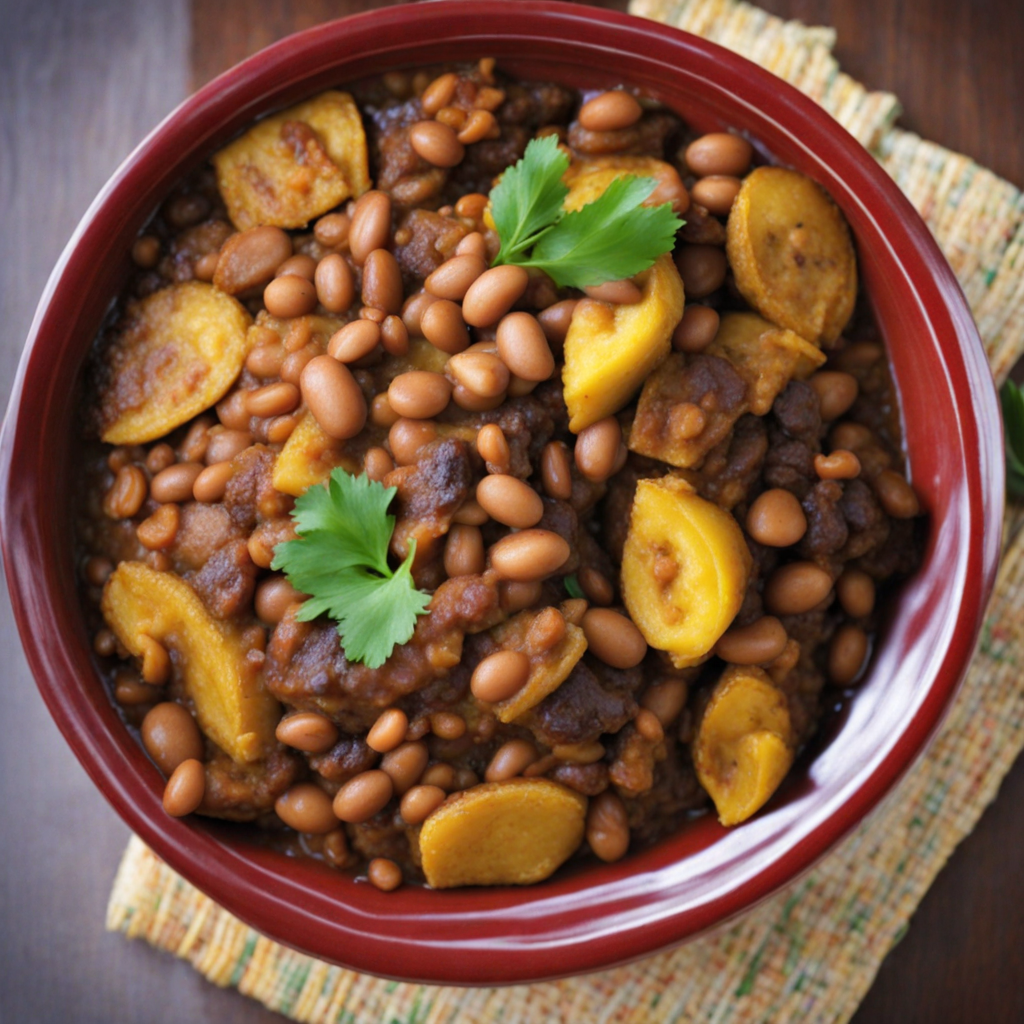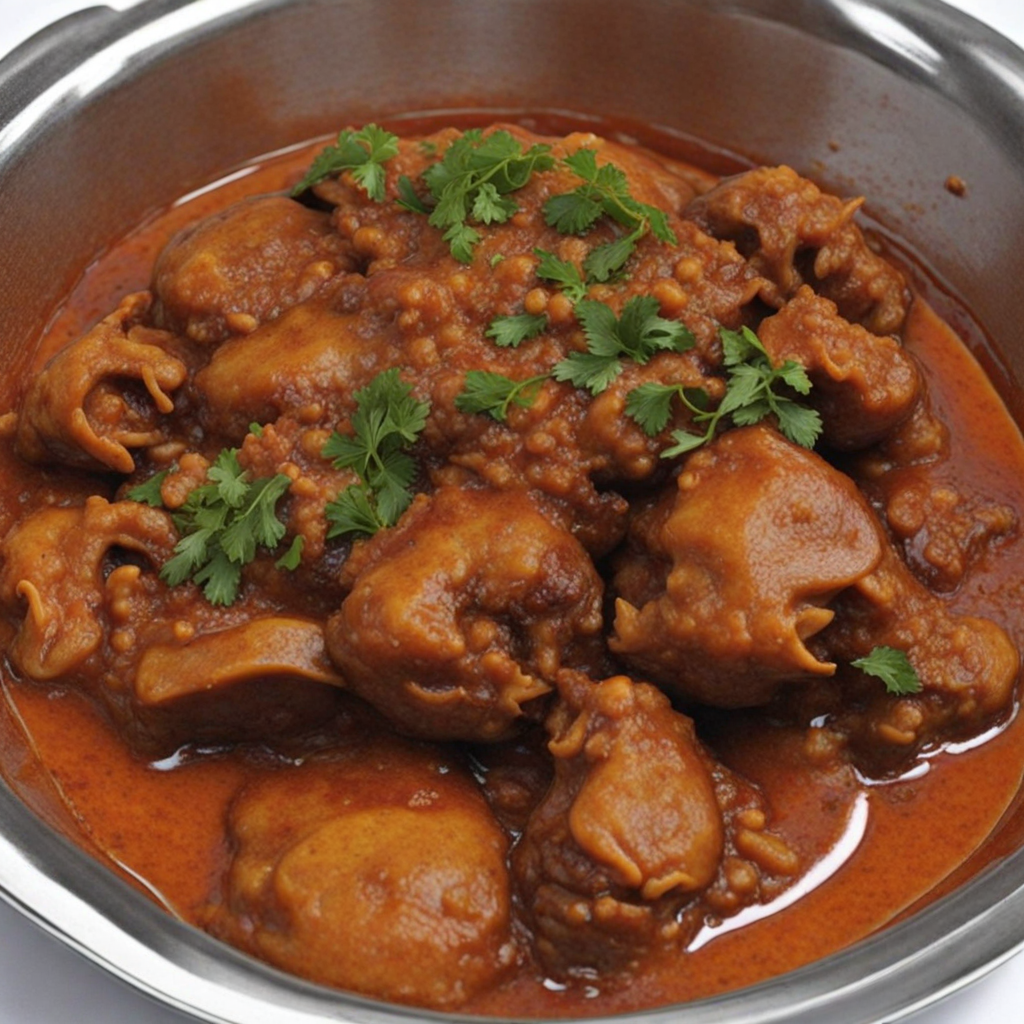Pepper Soup
Pepper Soup is a tantalizing and aromatic dish that hails from Nigeria, known for its bold and spicy flavors. This soup is typically made using a variety of meats, such as goat, chicken, or fish, which are simmered to perfection in a rich broth infused with a unique blend of spices. The hallmark of Pepper Soup is its heat, which comes from the liberal use of pepper, particularly the African bird's eye chili, giving it a fiery kick that is both invigorating and comforting. The addition of traditional spices such as calabash nutmeg, scent leaves, and sometimes even ginger and garlic, creates a complex flavor profile that excites the palate and warms the soul. One of the remarkable aspects of Pepper Soup is its versatility; it can be tailored to suit individual preferences, making it a popular choice for gatherings and celebrations. The soup is often served piping hot, accompanied by a side of rice or yam, but many enjoy it on its own as a starter or a main dish. The broth is usually clear, showcasing the vibrant colors of the ingredients, and it is often garnished with fresh herbs for an added burst of freshness. The combination of tender meat or fish alongside the spicy, aromatic broth creates a satisfying and hearty meal that is sure to leave a lasting impression. In Nigeria, Pepper Soup is often enjoyed not only for its delightful taste but also for its believed health benefits, which include aiding digestion and warming the body. It is a dish that evokes a sense of home and community, commonly served during family gatherings, celebrations, and even as a remedy for colds and flu. For those seeking to explore the rich culinary traditions of Nigeria, Pepper Soup offers an exciting journey into the world of flavors, making it a must-try for anyone eager to discover new and exhilarating tastes.
How It Became This Dish
Pepper Soup: A Journey Through Nigeria's Culinary Heritage Pepper soup, a beloved dish that embodies the vibrant culinary culture of Nigeria, is more than just a meal; it is a symbol of communal bonding, tradition, and healing. With its fiery, aromatic broth and an array of ingredients that vary by region and preference, pepper soup has an intriguing history that reflects the diverse ethnic groups and rich cultural tapestry of Nigeria. Origins The origins of pepper soup can be traced back to the indigenous peoples of Nigeria, long before the advent of colonialism and globalization. It is believed that the dish emerged from the necessity to create a warming, restorative broth, especially during the rainy season or in times of illness. Traditionally, pepper soup was concocted with locally sourced ingredients, primarily fish, chicken, or goat, combined with a variety of spices and herbs that contributed to its distinctive flavor profile. The inclusion of hot peppers—essentially the heart of the dish—can be linked to Nigeria's rich agricultural landscape, where peppers thrive due to the climate. The native West African pepper, known as "Uda" or "African pepper," lends its unique sharpness to the soup. The use of spices such as ginger, garlic, and local herbs like scent leaves (known as "Nchuanwu" in Igbo) not only enhances flavor but also carries medicinal properties, traditionally believed to ward off colds and flu. Cultural Significance In Nigerian culture, food is an integral part of social gatherings, rituals, and celebrations. Pepper soup is often served at significant events, such as weddings, funerals, and community festivals, highlighting its role as a dish of unity and hospitality. It is common to see pepper soup served alongside a variety of sides, such as yam, rice, or plantains, to create a complete meal that fosters sharing and togetherness. Moreover, pepper soup holds a special place in the realm of traditional medicine. In many Nigerian communities, it is served to nursing mothers, as it is believed to promote lactation and restore strength. The dish is also recommended for those recovering from illness, particularly because of its warming qualities and the belief that it aids in expelling ailments from the body. The act of preparing and serving pepper soup is often laden with cultural rituals, from the selection of ingredients to the manner of presentation, further solidifying its importance in the fabric of Nigerian society. Development Over Time As Nigeria evolved through colonialism, independence, and globalization, so too did its culinary landscape. The migration of people across regions and urbanization led to a fusion of flavors and adaptations of traditional dishes, including pepper soup. While the core essence of pepper soup remained intact, variations began to emerge, reflecting the diverse influences of the different ethnic groups within Nigeria. In the southeastern part of Nigeria, for example, pepper soup is often made with catfish or "point and kill," a popular method where diners choose live fish from a tank that is then prepared fresh. In contrast, the northern regions may favor goat meat, seasoned with traditional spices like cumin and coriander. Meanwhile, the Yoruba people frequently incorporate assorted meats in their versions, showcasing the regional preferences that have shaped the dish over time. The rise of food tourism and the global interest in African cuisine have also contributed to the evolution of pepper soup. With increased visibility on social media platforms and food blogs, chefs and home cooks alike have started to experiment with pepper soup, introducing new ingredients, such as seafood, and modern cooking techniques. This innovation has allowed pepper soup to transcend its traditional boundaries, appealing to a broader audience while still retaining its authentic roots. Furthermore, the diaspora has played a significant role in the global appreciation of pepper soup. Nigerians living abroad have embraced the dish as a way to reconnect with their heritage. Restaurants specializing in Nigerian cuisine have popped up in cities worldwide, showcasing pepper soup as a staple offering. This has led to a resurgence of interest in the dish, inspiring new generations to explore its preparation and significance. Modern Interpretations Today, pepper soup is not just a homely dish; it is also a culinary canvas for chefs who seek to reinterpret traditional recipes. Fine dining establishments in Nigeria and abroad have begun to feature pepper soup as part of their menus, often elevating it with gourmet ingredients or contemporary plating styles. Some chefs experiment with fusion concepts, combining elements from other cuisines to create unique adaptations, such as pepper soup risotto or pepper soup-infused cocktails. The dish's versatility allows for endless possibilities, with variations that cater to different dietary preferences, including vegetarian and vegan options. The use of plant-based proteins, such as tofu or lentils, has emerged as a modern take on this classic, making it accessible to a wider audience while still honoring its traditional roots. Conclusion Pepper soup remains a vibrant expression of Nigerian culture, embodying the spirit of community, healing, and the celebration of life’s milestones. Its rich history, rooted in tradition and nurtured through generations, reflects the resilience of the Nigerian people and their culinary art. As the world continues to embrace diverse flavors and food traditions, pepper soup stands as a proud ambassador of Nigerian cuisine, inviting all to experience its warmth, spice, and depth of flavor. In a world increasingly focused on the importance of food as a means of connection, pepper soup serves as a reminder of the power of culinary heritage to bridge gaps, foster understanding, and bring people together. Whether enjoyed at a bustling market, a family gathering, or a high-end restaurant, pepper soup remains a powerful testament to Nigeria's rich culinary legacy, one bowl at a time.
You may like
Discover local flavors from Nigeria







